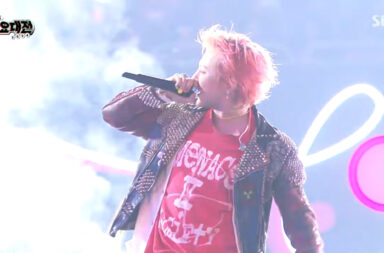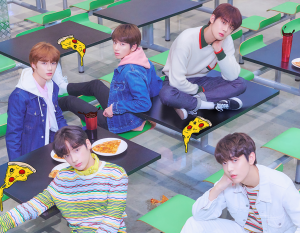
In recent years, most debuting K-pop groups have emerged with a strong sound (assisted mostly by EDM and hip-hop) and an even edgier look. The main message they carry appears to be in line with this as well — variations of proving, being, or bettering oneself.
So last year, it was quite a shock to see a rookie group shy away from this hardcore convention and come out with songs that felt largely soft, vulnerable. And perhaps even more surprising is that this was all wrapped up in the effervescent lightness of pop.
Reclaiming representations of youth
At the start of 2019, all eyes were on TXT, Big Hit Entertainment‘s first major act since unleashing BTS to the world seven years ago. Before their debut, the five young members were expected to carry some of the same qualities that propelled their seniors to mega-hit, worldwide status.
But instead of taking on hip-hop or championing messages of self-love, TXT greeted the world with “Crown“, a bright pop track that may come off as aggressively bubbly at first. Dressed in rainbow-colored everything, the boys play around for most of the MV, smiling earnestly at the camera and spitting playful hexes like “abracadabra.”
The concept seems appropriate. After all, the boys, whose ages range from 18 to 21, are only newly minted adults; they still have the teenage experience fresh on their backs. It’s all well and good for them to revel in this youthful image, but after soaking in a bit of that, one has to ask: where is the proverbial edge of the group? Where is the bite that will keep fans hooked?
Though belated, especially for non-Korean speakers such as myself, the answer presents itself as soon as the lyrics kick in. You wouldn’t have guessed it from the dizzying animation and energetic beat, but as it turns out, the boys are singing about the timeless perils of growing up in “Crown”. Their edge lies in the honesty they lay bare in the lyrics.
The critical angst of youth is already exhibited at the onset when they sing, “You, staring at me blankly in the mirror, you’re not me . . . I wanna run away, wanna disappear far away.” They continue:
My body must have gone mad
There’s a horn coming out of my head
What do I do? I don’t know how to stop it
Oh, I’m the only bad thing in this world
Save me, maybe I have turned into a monster
Calling oneself a monster while going through very normal–but often misrepresented–changes in adolescence is painfully relatable, and choosing to symbolize this in the form of growing horns, which have historically represented both evil and beginnings in some cultures, is an undeniably smart move on the creative team’s part. So why not pick a genre that’s closer to the raw bluntness of the lyrics, like hip-hop, rock, or even goth? Not to take anything away from pop, but given the subject, why choose this genre and its often-peppy visuals?
Though TXT’s chosen concept may appear at odds with the themes they tackle, the contradiction here may be intentional, especially since hiding weighty messages in lighthearted videos is a trend that notably appears in many of their subsequent MVs. This is how TXT are paving their way: by addressing the darkness of youth with the lightness of pop.
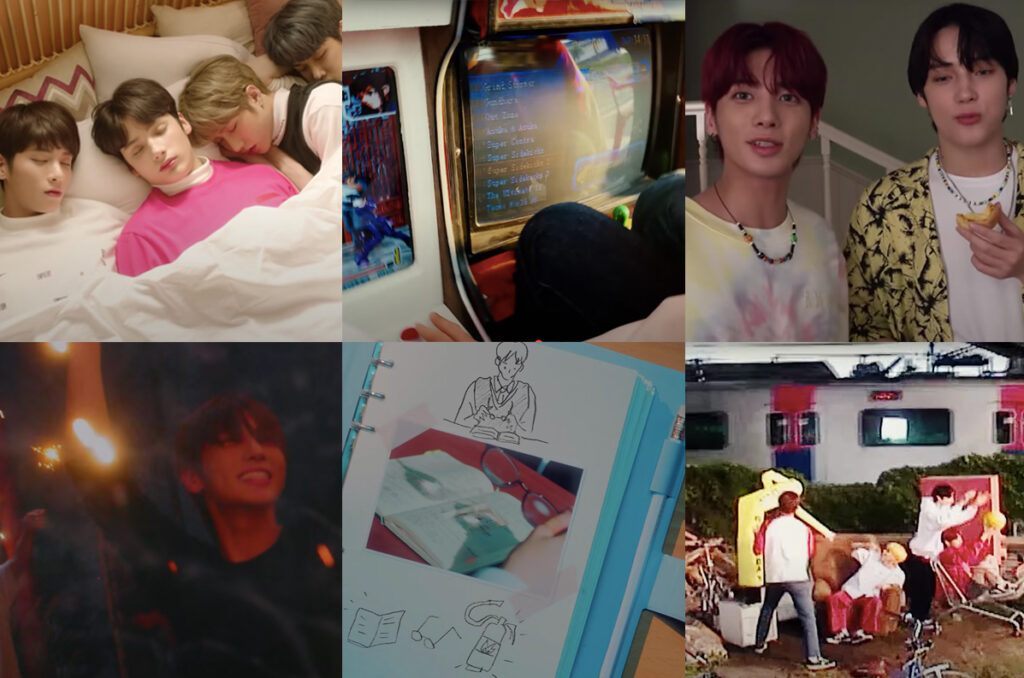
A closer look at the styles they’ve employed since their debut reveals an over-the-top reliance on typical teenage iconography: diaries, friendship bracelets, sleepovers, after-school hangouts, parties. TXT use these images associated with young people to subvert what they have come to represent: naiveté, excess, and recklessness. And they achieve this subversion by tackling the darker truths of adolescence— issues like loneliness, insecurity, and anxiety — within the same space. In essence, they are reclaiming the teenage identity by recognizing both the highs and lows of this complicated experience.
TXT’s trademark duality
Aside from the paradoxical use of these images, there is another way TXT depict the duality of youth, and that is by having each of their comebacks embody a certain aspect or quality of being young.
In K-pop, MVs often serve as a visual and narrative guide to a group’s new comeback in multi-part releases; they’re packed with symbols and messages about the main theme. Though most groups release one to two MVs for each comeback, TXT have consistently released no less than three MVs per album, providing more ground for their thematic explorations.

TXT’s MVs exist along a spectrum. At one end are “Cat & Dog”, “Angel or Devil”, and “Puma”: catchy, upbeat, and seemingly harmless tracks that the general public is more or less used to consuming.
Meanwhile, “Nap of a Star”, “Magic Island”, and “Eternally” are at the very far end of this range. These are the more bizarre MVs, cultish in their eccentricity, and exciting in the possibilities they tackle.
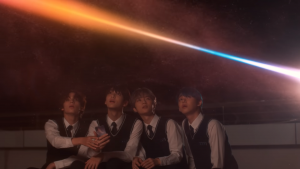
Smack in the middle of this is always the title track (“Crown”, “Run Away”, and “Can’t You See Me?”) which attempts to combine the first category’s commercial pull with the second category’s emotional depth, often by way of contrasting visuals and lyrics.
Though this strategy surely has profit-oriented reasons (not least of which is to appeal to as many fans as they can), the three-tiered structure serves a creative purpose as well. It highlights TXT’s commitment to telling a fuller story about the adolescent experience and its jarring dichotomy. Through the The Dream Chapter series and the Star, Magic, and Eternity albums, they’ve managed to tell three unique and poignant stories about what it’s like to be young in this day and age.
The Dream Chapter: Star — the excitement and confusion of youth
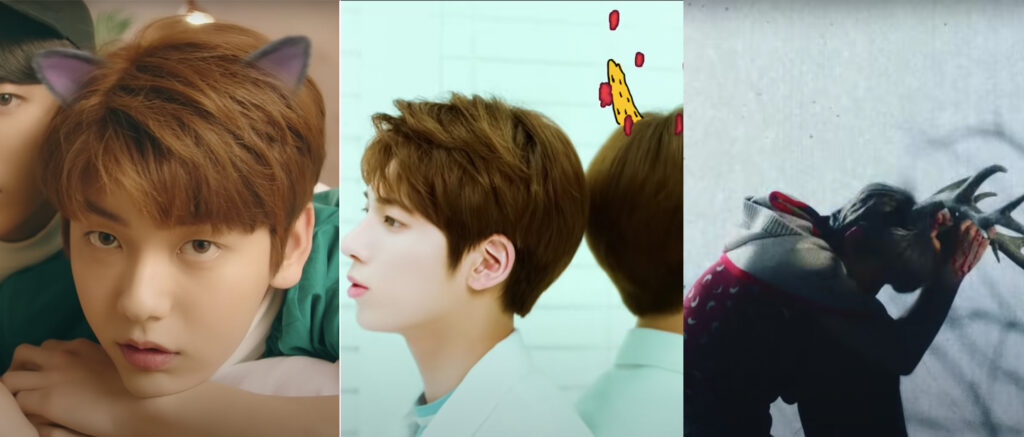
Utilizing the horn/crown metaphor throughout, the Star comeback marks the start of their coming-of-age journey.
In “Cat & Dog”, the boys personify puppy love:
Oh, my God, what the heck is this feeling?
I become a puppy when I see you.
They also declare, in an appropriately dramatic tone, that they’d rather be domesticated animals if it means they get to spend more time with the person they like. The MV builds on the lyrics; it is an ode to our first bout of romantic love, in all its glorious innocence, theatrics, and awkwardness.
In “Crown,” however, there is a growing awareness of their changing bodies and how that can manifest in unpleasant ways. After berating themselves for growing horns all of a sudden, they ask, confused: “Why is the world treating me like this? / . . . Would there be light? Even for the devils?” Again, the youthful drama is palpable in these lines. As anxiety increasingly becomes the norm among teens, it’s become common to question and doubt, just as these boys do, our place in the world and whether or not things really do get better down the road.
Note: The next paragraph references images that may be graphic to some readers, and briefly mentions self-harm.
The last MV of this album, “Nap of a Star”, takes all these themes to an extreme, placing the boys in a fantasy, George Méliès-inspired world. Yeonjun acts on the shame of having grown giant antlers and runs away to a forest where he encounters a large, dark figure. After staring at it in fear, a thin red cut appears on his throat. He attempts to bloodily break off his horns, which some took to be a sign of self-harm, an unfortunately common occurrence among young people.
But Yeonjun’s attempt can also be seen as a desire to return to the way things were. The Star era culminates in this display of adolescent rejection; as it turns out, it’s not as fun or glossy as it was hyped up to be. The fact that he fails is a terse reminder that no matter how hard we try, we can’t stop ourselves from growing up. We can, however, choose how to deal with this unavoidable reality.
This lesson seems to dawn on Yeonjun as the other TXT members show up at his side, each sporting their own version of the horn. Soobin has elvish ears, Taehyun has a star for an eye, Beomgyu has spikes all over his shoulders, and Hueningkai has large wings. Though they each have their own burden to bear, they take comfort in the fact they can deal with it together.
Unlike the songs before it, “Nap of a Star” sounds almost like a lullaby — sweet, slow, and haunting. But despite its gloomy backdrop, there is a soft glow of reassurance as they sing, “I can feel you, even if you don’t say a word / Because I believe in you, even if I’m insecure myself.”
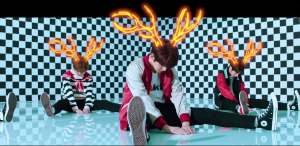
Of course, each MV stands perfectly fine on its own. But a bigger message emerges when taken all together. “Cat & Dog” and “Nap of a Star” are two sides of the same coin. Both express how overwhelming it can be to deal with these new feelings, be it when addressing a lover or confronting insecurities. The horns they’ve received are both a blessing and a curse, and “Crown” distills both sentiments and offers up a fix: friendship.
Far from being a sugarcoated, end-all, be-all solution, however, the boys seem to merely suggest that for now, at least until they figure things out, being around people who accept you for who you are might be the best way to navigate this confusing time in one’s life. As the bridge in “Crown” goes:
Actually, I’m still a little worried
I’m standing in between the cold sneer and the loneliness
Nobody can understand — but it’s you
Your existence changes my world like magic
I’m not in pain anymore.
The Dream Chapter: Magic — the exploration and evasion of youth
Armed with this new mindset, the boys brave their way through adolescent life in the Magic MVs.
“Angel or Devil” is unmistakably this era’s “Cat & Dog”, but instead of giving in to the lover out of pure adoration, here the members are considering whether they should change their approach to something more devilish and risqué.
In coming-of-age stories, the lead often experiments with different styles and personalities in an attempt to “find” oneself. “Angel or Devil” is that part of TXT’s story. In a song that is chock-full of references, from BTS’ “Boy in Luv” to Moebius–a 2013 horror film in which the lead actress plays dual roles–they contemplate the ways in which they can reinvent themselves for the person they like.
Visually, there’s not much going on in “Angel or Devil”, but it is notable that they’ve exchanged their pastels and bowl cuts for something more rugged. Donning street clothes, gold chains, and longer hair, it looks like the boys are finally coming into their adolescent selves, shedding away former markers of their childhood.
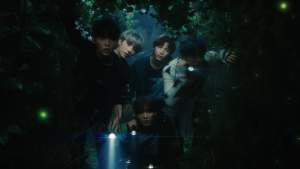
But if they seem self-assured there, “Run Away” reminds us that they’re still the same self-doubting boys we’ve come to know in the previous songs. In the MV, the gang is back in school but the opening lines make it clear that they’d rather be someplace else:
It feels like everyone’s happy but me
It hurts more when I smile than when I cry
Though I try to hold it back every day,
Though I try to hang in there,
It’s not working so well
As the title indicates, the whole song is about running away — not just from school but from what it has come to represent, namely unyielding responsibilities, restrictions, and expectations. In recent years, South Korea has had a reckoning with its strict educational system after it was found that the nation’s top world rankings and accolades came at the expense of the students’ mental health.
Though still taboo, it’s something the local media has tried to bring more into the open, most notably through dramas like Sky Castle and songs like “N.O“.
To a lesser degree, “Run Away” touches on the same themes but focuses instead on how the system can emotionally isolate kids to the point where they’d rather escape instead of learn from it. Borrowing heavily from the Harry Potter series, the boys sing about reaching the evasive 9 ¾ station they hope will bring them to a new world, one where they’re free to live and do as they please.
The third MV, “Magic Island”, which clocks in at a whopping 13 minutes and 35 seconds, expands on this escapism and follows the boys as they skip school to visit a hidden island they have all to themselves. In a move vaguely reminiscent of Lord of the Flies, they attempt to live in this paradise forever and symbolically strip away their school uniforms and burn them in flames.
Fire can mean many things, but in “Magic Island” it seems to represent the boys’ growing rebellion. Beomgyu takes out a bunch of fireworks from his bag and hands them out to the members. Drunk in their newfound freedom, the boys light these up and dance around, accidentally setting their sanctuary on fire. In the end, they are driven mad by their own doing and, in a cruel twist of fate, are rammed by the same train that brought them to the magic island. The final shot shows them lying motionless on the tracks, flowers blooming in the spaces between them.
The metaphorical death of these young boys at the peak of their explorative and experimental phase is heartbreaking. It recalls a specific truth that lives in many of pop culture’s best come-of-age moments, from this tell-all scene in the Breakfast Club to the powerful endings of movies like Stand by Me (pictured below) and American Graffiti: youth, in all its delight and mishaps, has to end at some point. The rest of your life is just a series of look-backs at what you used to be and who you used to be with, and with this philosophy drilled into today’s youth (crystallized in acronyms like YOLO and FOMO), it only makes sense for them to make it as explosive as it can be.
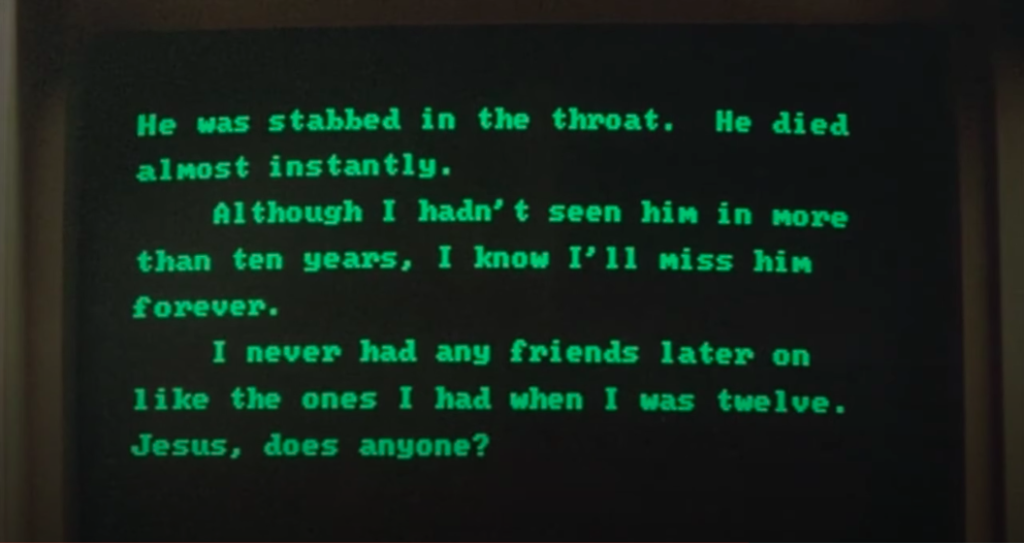
While the Star MVs feel like different sides of the same coin, Magic’s set feels more continuous, like a hoop within a hoop. One event leads to another, which brings them back to the start. All the while, the same desire to know and be more underlies every single motivation.
The Dream Chapter: Eternity — the bravery and bitterness of youth
The loss and emptiness that bookended the Magic era reverberates throughout The Dream Chapter’s final installation, where the members showcase a more guarded and mature side of themselves.
In “Puma”, the boys have come a long way from being wide-eyed kittens to the titular wild cat. Instead of addressing a nonexistent lover, here they celebrate exhilarating freedom and compare it to a puma’s escape from a zoo in South Korea. They sing:
I feel awake, breathing and dreaming
The world I dreamed of
The greatest night sky in my life
The speed of my feet is matched
That green light in front of me
What are you afraid of?
Clad in tight leather and heavy eyeliner, the boys look like they’ve gone through some kind of rude awakening. And true enough, the lyrics point to a willingness to finally face–rather than hide or escape from–the real world. Though they ruminate on the difficulties of breaking free, the boys claim in the song, “My choice is my leader / I am my believer.” This bravery seems to stem from a renewed conviction in one’s self, which they may have acquired during that one night on the island — baptism literally by fire.
The self also takes center stage in “Can’t You See Me?“, an anthem for all the kids left behind by their friends. Despite the loving promises they made in previous songs, the boys’ relationship reaches a breaking point in this track. They hurl accusations (“You turned your back to me that night the world was on fire”), call each other liars, and ask desperately if they can really, truly see and feel the other’s pain. Finally, they declare, “Once again, I’m left alone.”
As the poignant refrain, “friends don’t understand me anymore” suggests, this self-reliance they’ve adopted is less about empowerment and more about betrayal, fueled by the bitter realization that the people they trusted are capable of abandoning them. It points at how cries for help often go unnoticed, as we see in their distant, uncomfortable gazes in the MV, and how this can establish deep-seated, long-lasting rage in a person.
The last MV, “Eternally”, is shot more like a short film, with the music interspersed like dialogue and the running time reaching an impressive 19 minutes and 30 seconds. Conveyed in an eerie, Rashomon-style narrative, it shows the boys acting cordially on the surface even though they’re teeming with bewilderment and suspicion beneath.
No other song in the TXT discography represents the group’s duality better than “Eternally”. The track starts soft and dreamy as the boys sing about the hurt of being forgotten and wanting to get lost in a “maze of memories”. Then, without warning, it switches to a quicker tempo and their melodic voices turn into sinister whispers as they sing about broken trust. It’s hard to believe these are parts of the same song, but there is a brief interlude that ties the two bits together. In it, Beomgyu draws out the line, “I want to end this world.”
This era notably makes no mention of friendship’s respite, which was so consistently present in the previous songs. From “Puma”s insistence on making it on one’s own, to “Can’t You See Me?”s scathing accusations, to ‘Eternally’s muted resentment, it’s clear that that warmth is gone. Maybe it died in the fire along with the rest of their idealism in “Magic Island”. Maybe the only way to truly trust one’s self is to be disappointed by others. Or maybe, this is just them growing up because, as the Breakfast Club’s Allison puts it, it’s an inevitable process. “When you grow up,” she quips, “your heart dies.” Whatever the reason, they’ll have to confront their future head-on sooner or later—equipped, fortunately, with the wild experiences and indispensable lessons they encountered in The Dream Chapter.
(YouTube. Images via Big Hit Entertainment, Columbia Pictures. Dictionary of Symbols.)
Renee is an editor and freelance writer. When she’s not overanalyzing music, films, and TV shows, she enjoys making collage art here.
If you’d like to submit a guest piece, check out our Work with Us page for submission guidelines.
Enjoyed this article? Here are some other picks you might enjoy:
TXT Confront the Fragility of Youthful Friendship in “Can’t You See Me?”
Youth: The Most Uncertain but Beautiful Moment in BTS’ Life
Music & Lyrics: Finding Yourself with Stray Kids

